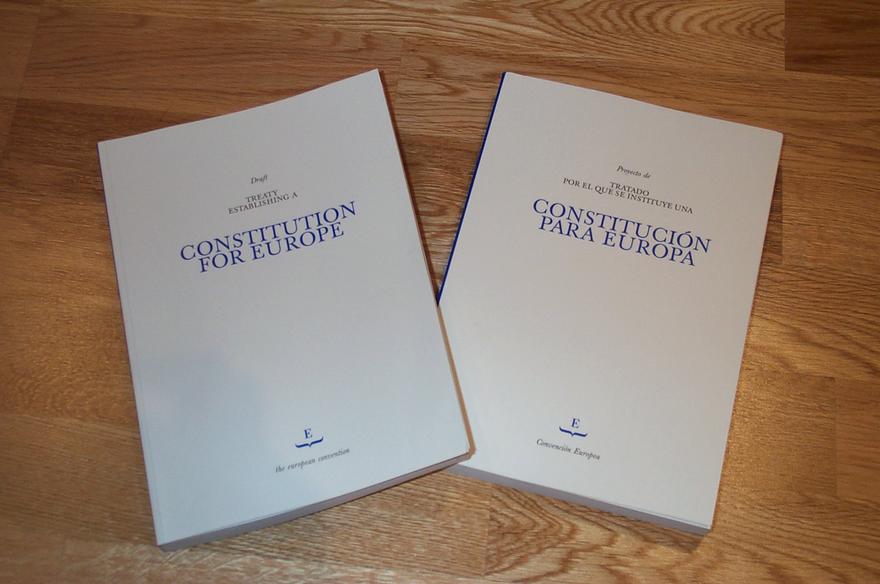|
Costa V ENEL
''Flaminio Costa v ENEL'' (1964) Case 6/64 was a landmark decision of the European Court of Justice which established the primacy of European Union law (then Community law) over the laws of its member states.Hilf, Meinhard (2012). Costa v. ENEL case, in Wolfrum, Rudiger (ed.): ''The Max Planck Encyclopedia of Public International Law''. Oxford: Oxford University Press, p. 824. Facts Mr. Costa was an Italian citizen who had owned shares in an electricity company, Edisonvolta, and opposed the nationalisation of the electricity sector in Italy. He asked two lower courts in Milan (two different ''Giudici conciliatori'') to ascertain that the real creditor of his electricity bill (a relatively small amount of money, 1,925 lire) was the nationalised company, Edisonvolta, and not the newly established state company, Enel. He argued that the nationalisation of the electricity industry violated the Treaty of Rome and the Italian Constitution. The first ''Giudice conciliatore'' of ... [...More Info...] [...Related Items...] OR: [Wikipedia] [Google] [Baidu] |
Landmark Decision
Landmark court decisions, in present-day common law legal systems, establish precedents that determine a significant new legal principle or concept, or otherwise substantially affect the interpretation of existing law. "Leading case" is commonly used in the United Kingdom and other Commonwealth jurisdictions instead of "landmark case", as used in the United States. In Commonwealth countries, a reported decision is said to be a ''leading decision'' when it has come to be generally regarded as settling the law of the question involved. In 1914, Canadian jurist A. H. F. Lefroy, Augustus Henry Frazer Lefroy said "a 'leading case' [is] one that settles the law upon some important point". A leading decision may settle the law in more than one way. It may do so by: * Distinguishing a new principle that refines a prior principle, thus departing from prior practice without violating the rule of ''stare decisis''; * Establishing a "test" (that is, a measurable standard that can be applied ... [...More Info...] [...Related Items...] OR: [Wikipedia] [Google] [Baidu] |
Supremacy (European Union Law)
The primacy of European Union law (sometimes referred to as supremacy or precedence of European law) is a legal principle establishing precedence of European Union law over conflicting national laws of EU member states. The principle was derived from an interpretation of the European Court of Justice, which ruled that European law has priority over any contravening national law, including the constitution of a member state itself. For the European Court of Justice, national courts and public officials must disapply a national norm that they consider not to be compliant with the EU law. The majority of national courts have generally recognized and accepted this principle, except for the part where European law outranks a member state's constitution. As a result, national constitutional courts have also reserved the right to review the conformity of EU law with national constitutional law. Some countries provide that if national and EU law contradict, courts and public officials ... [...More Info...] [...Related Items...] OR: [Wikipedia] [Google] [Baidu] |
1964 In Case Law
Events January * January 1 – The Federation of Rhodesia and Nyasaland is dissolved. * January 5 - In the first meeting between leaders of the Roman Catholic and Orthodox churches since the fifteenth century, Pope Paul VI and Patriarch Athenagoras I of Constantinople meet in Jerusalem. * January 6 – A British firm, the Leyland Motors, Leyland Motor Corp., announces the sale of 450 buses to the Cuban government, challenging the United States blockade of Cuba. * January 9 – ''Martyrs' Day (Panama), Martyrs' Day'': Armed clashes between United States troops and Panamanian civilians in the Panama Canal Zone precipitate a major international crisis, resulting in the deaths of 21 Panamanians and 4 U.S. soldiers. * January 11 – United States Surgeon General Luther Terry reports that smoking may be hazardous to one's health (the first such statement from the U.S. government). * January 12 ** Zanzibar Revolution: The predominantly Arab government of Zanzibar is overthrown b ... [...More Info...] [...Related Items...] OR: [Wikipedia] [Google] [Baidu] |
Court Of Justice Of The European Union Case Law
A court is any person or institution, often as a government institution, with the authority to adjudicate legal disputes between parties and carry out the administration of justice in civil, criminal, and administrative matters in accordance with the rule of law. In both common law and civil law legal systems, courts are the central means for dispute resolution, and it is generally understood that all people have an ability to bring their claims before a court. Similarly, the rights of those accused of a crime include the right to present a defense before a court. The system of courts that interprets and applies the law is collectively known as the judiciary. The place where a court sits is known as a venue. The room where court proceedings occur is known as a courtroom, and the building as a courthouse; court facilities range from simple and very small facilities in rural communities to large complex facilities in urban communities. The practical authority given to the co ... [...More Info...] [...Related Items...] OR: [Wikipedia] [Google] [Baidu] |
European Union Constitutional Law
European Union law is a system of rules operating within the member states of the European Union (EU). Since the founding of the European Coal and Steel Community following World War II, the EU has developed the aim to "promote peace, its values and the well-being of its peoples". The EU has political institutions, social and economic policies, which transcend nation states for the purpose of cooperation and human development. According to its Court of Justice the EU represents "a new legal order of international law".''Van Gend en Loos v Nederlandse Administratie der Belastingen'' (1963Case 26/62/ref> The EU's legal foundations are the Treaty on European Union and the Treaty on the Functioning of the European Union, currently unanimously agreed on by the governments of 27 member states. New members may join if they agree to follow the rules of the union, and existing states may leave according to their "own constitutional requirements".TEart 50 On the most sophisticated discu ... [...More Info...] [...Related Items...] OR: [Wikipedia] [Google] [Baidu] |
1964 In Italy
Events January * January 1 – The Federation of Rhodesia and Nyasaland is dissolved. * January 5 - In the first meeting between leaders of the Roman Catholic and Orthodox churches since the fifteenth century, Pope Paul VI and Patriarch Athenagoras I of Constantinople meet in Jerusalem. * January 6 – A British firm, the Leyland Motor Corp., announces the sale of 450 buses to the Cuban government, challenging the United States blockade of Cuba. * January 9 – ''Martyrs' Day'': Armed clashes between United States troops and Panamanian civilians in the Panama Canal Zone precipitate a major international crisis, resulting in the deaths of 21 Panamanians and 4 U.S. soldiers. * January 11 – United States Surgeon General Luther Terry reports that smoking may be hazardous to one's health (the first such statement from the U.S. government). * January 12 ** Zanzibar Revolution: The predominantly Arab government of Zanzibar is overthrown by African nationalist rebels; a United ... [...More Info...] [...Related Items...] OR: [Wikipedia] [Google] [Baidu] |
Van Gend En Loos V Nederlandse Administratie Der Belastingen
''Van Gend en Loos v Nederlandse Administratie der Belastingen'' (1963) Case 26/62 was a landmark case of the European Court of Justice which established that provisions of the ''Treaty Establishing the European Economic Community'' were capable of creating legal rights which could be enforced by both natural and legal persons before the courts of the Community's member states. This is now called the principle of direct effect. The case is acknowledged as being one of the most important, and possibly the most famous development of European Union law. The case arose from the reclassification of a chemical, by the Benelux countries, into a customs category entailing higher customs charges. Preliminary questions were asked by the Dutch Tariefcommissie in a dispute between Van Gend en Loos and the Dutch Tax Authority (Nederlandse Administratie der Belastingen). The European Court of Justice held that this breached a provision of the treaty requiring member states to progressively ... [...More Info...] [...Related Items...] OR: [Wikipedia] [Google] [Baidu] |
Thoburn V Sunderland City Council
''Thoburn v Sunderland City Council'' (also known as the "Metric Martyrs case") is a UK constitutional and administrative law case, concerning the interaction of EU law and an Act of Parliament. It is important for its recognition of the supremacy of EU law and the basis for that recognition. Though the earlier ''Factortame'' had also referred to Parliament's voluntary acceptance of the supremacy of EU law, ''Thoburn'' put less stress on the jurisprudence of the ECJ and more on the domestic acceptance of such supremacy; Lord Justice Laws suggested there was a hierarchy of "constitutional statutes" that Parliament could only expressly repeal, and so were immune from implied repeal. Facts The Weights and Measures Act 1985 section 1 provided that both the pound and the kilogram are equally legal units of measurement in the United Kingdom. In 1994, several statutory instruments came into force bringing the United Kingdom into compliance with Directive 80/181/EEC which aimed to ... [...More Info...] [...Related Items...] OR: [Wikipedia] [Google] [Baidu] |
Direct Effect
In European Union law, direct effect is the principle that Union law may, if appropriately framed, confer rights on individuals which the courts of member states of the European Union are bound to recognise and enforce. Direct effect is not explicitly stated in any of the EU Treaties. The principle of direct effect was first established by the Court of Justice of the European Union (CJEU) in ''Van Gend en Loos v. Nederlandse Administratie der Belastingen''.(Case 26/62); 963ECR 1; 970CMLR 1 Direct effect has subsequently been loosened in its application to treaty articles and the ECJ has expanded the principle, holding that it is capable of applying to virtually all of the possible forms of EU legislation, the most important of which are regulations, and in certain circumstances to directives. The ECJ first articulated the doctrine of direct effect in the case of ''Van Gend en Loos'', the European Court of Justice laid down the criteria (commonly referred to as the "Van Gend cr ... [...More Info...] [...Related Items...] OR: [Wikipedia] [Google] [Baidu] |
Treaty Of Lisbon
The Treaty of Lisbon (initially known as the Reform Treaty) is an international agreement that amends the two treaties which form the constitutional basis of the European Union (EU). The Treaty of Lisbon, which was signed by the EU member states on 13 December 2007, entered into force on 1 December 2009.eur-lex.europa.eu: " Official Journal of the European Union C 115 Volume 51, 9 May 2008, retrieved 1 June 2014 It amends the (1992), known in updated form as the Treaty on European Union ...
[...More Info...] [...Related Items...] OR: [Wikipedia] [Google] [Baidu] |
European Constitution
The Treaty establishing a Constitution for Europe (TCE; commonly referred to as the European Constitution or as the Constitutional Treaty) was an unratified international treaty intended to create a consolidated constitution for the European Union (EU). It would have replaced the existing European Union treaties with a single text, given legal force to the Charter of Fundamental Rights, and expanded qualified majority voting into policy areas which had previously been decided by unanimity among member states. The Treaty was signed on 29 October 2004 by representatives of the then 25 member states of the European Union. It was later ratified by 18 member states, which included referendums endorsing it in Spain and Luxembourg. However, the rejection of the document by French and Dutch voters in May and June 2005 brought the ratification process to an end. Following a period of reflection, the Treaty of Lisbon was created to replace the Constitutional Treaty. This contained man ... [...More Info...] [...Related Items...] OR: [Wikipedia] [Google] [Baidu] |





